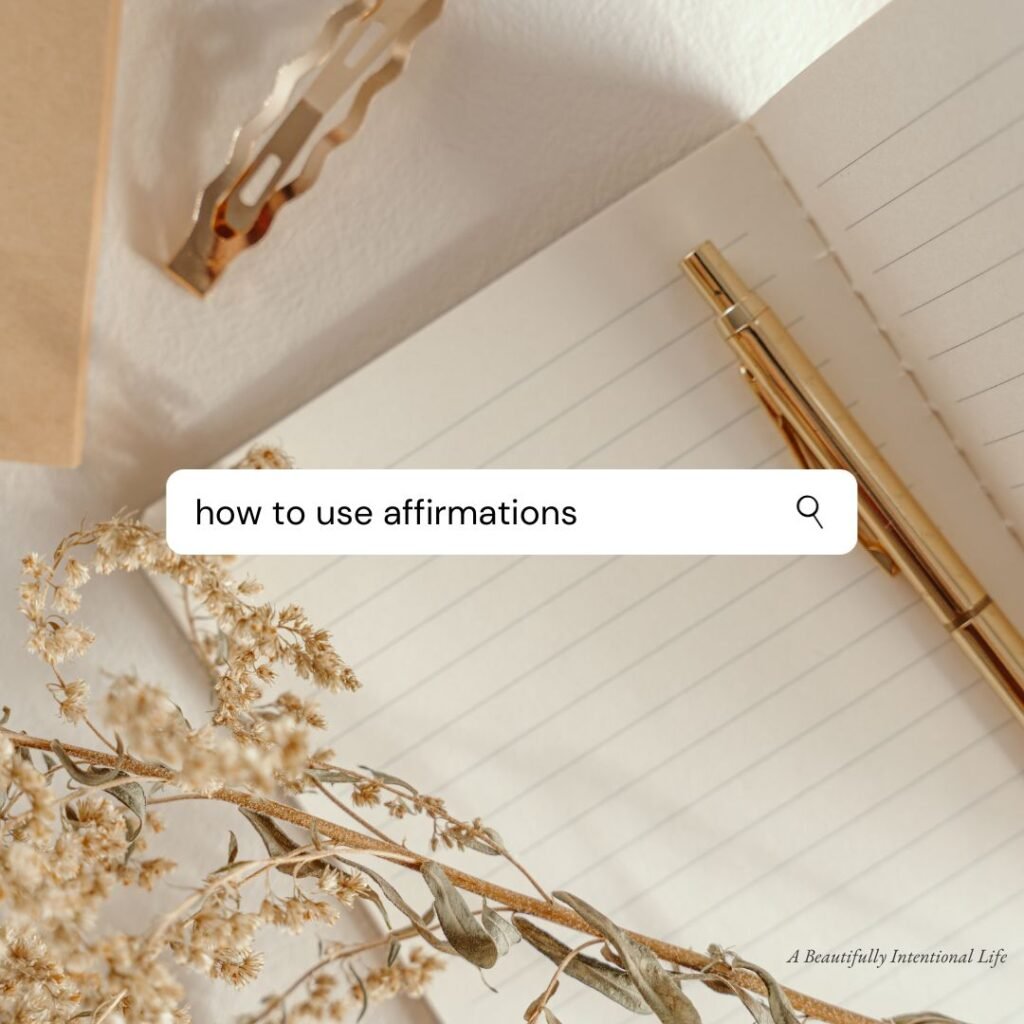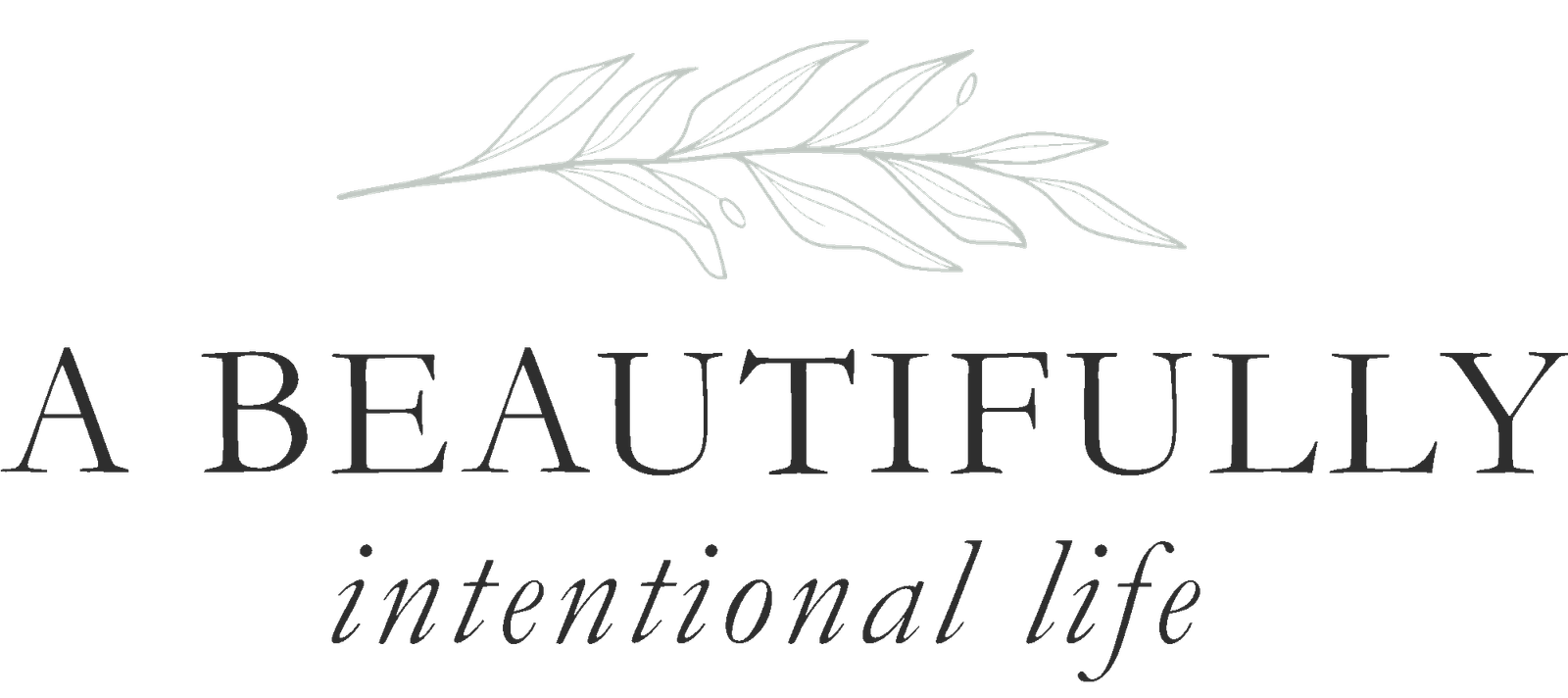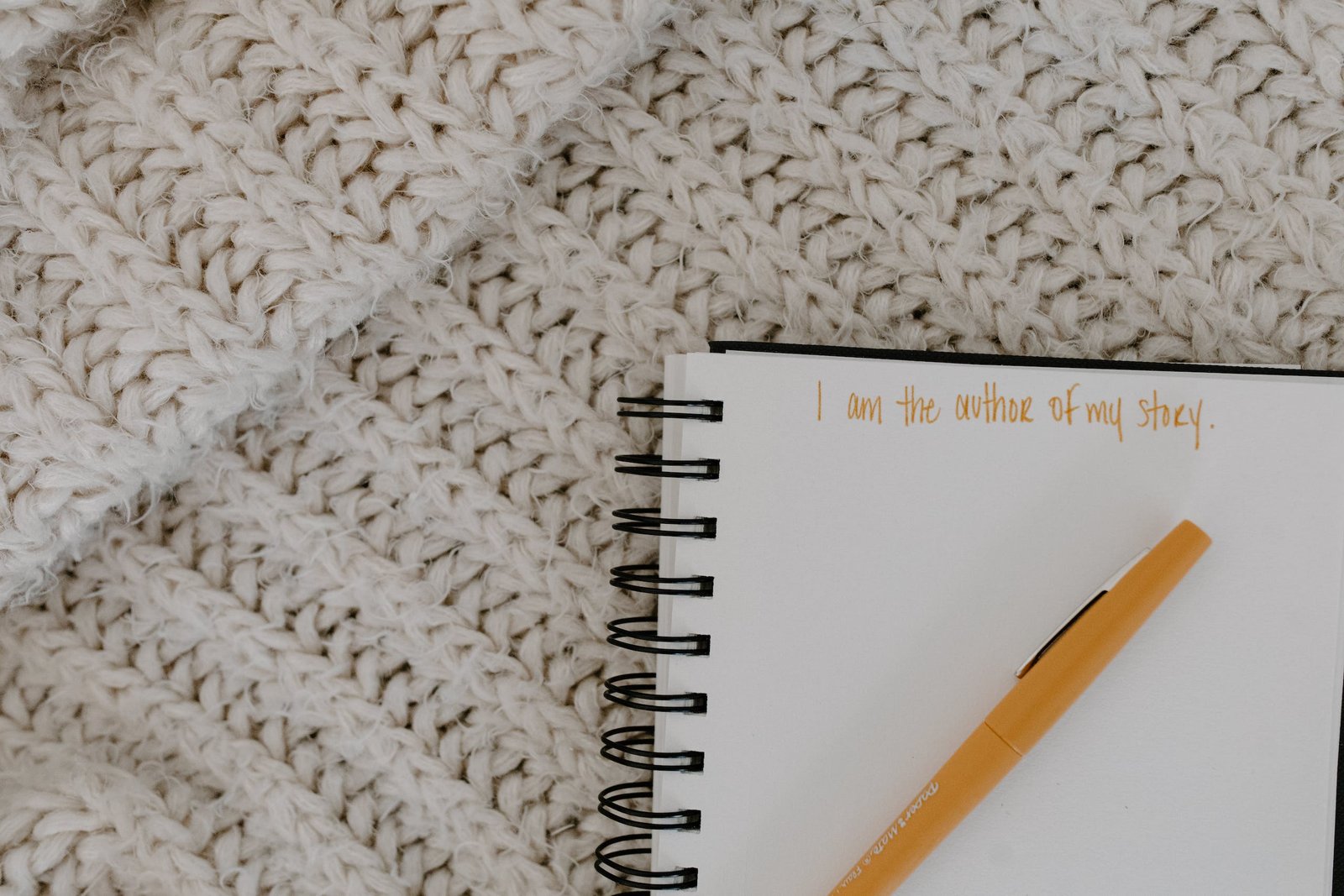The ultimate guide to writing and using affirmations

If you’ve landed on this page, you’ve probably already heard about affirmations and are curious about how to write affirmations, how to use them and how they work.
Maybe a friend told you they were writing out affirmations or listening to an affirmation meditation… or maybe you got curious after seeing someone talk about them on TikTok! Maybe you’ve even tried to write some of your own but you’re not sure if you’re doing it right.
Whatever brought you here, I’m happy you made it! And if you’re still a little confused about what affirmations are and how to actually use them, this post is for you!
Table of Contents
How to use affirmations in your daily life
What are affirmations?
The way you talk to yourself is so important! This is because what you say to yourself reflects how you think about yourself and the world around you…and the way you think about yourself and the world around you affects your actions. Let me explain…
Imagine you were in a crappy job with a really toxic boss. Your boss regularly tells you that your work is garbage and reminds you daily that you just can’t seem to get anything right. Every day you come home stressed out and feeling miserable. Now imagine you stay in this job for two years. Every day for two years you hear negative comments about yourself from your boss. How do you think that would affect you after all that time?
After two years of repeatedly being told that you’re terrible at your job, you might start to believe that your boss was right. Maybe you really aren’t good at your work. Maybe you really can’t get anything right. Your confidence, self-esteem and self-worth would take a huge hit. Now think about how this would affect you in your every day life. How would it impact the way you carry yourself, make decisions and show up in the world?
Now, hopefully you wouldn’t actually stick around to be treated like that! Yet, many of us actually treat ourselves like that every single day for years and years! Take a minute to think about the words you tell yourself on a daily basis. How often do you say things to yourself that you would literally never say to someone else. How often are you your own worst critic? How do you think that has affected the way you show up in the world?
Now what if you actually changed the way you talked to yourself?
How might your life changed if you had supportive, loving thoughts towards yourself? There’s a saying that beliefs are thoughts that we have over and over and eventually accept as truth. In other words, if we think something over and over for long enough, we’ll start to believe that it’s true. This can be a bad thing if the belief is not helpful to us, but it can also be a good thing if the belief is supporting us. This is where affirmations come in!
Affirmations are a tool that you can use to help change your thoughts through repetition (and eventually change your beliefs or adopt a new mindset.) They are powerful little statements that describe an intention or desire that you have for yourself or your life. You can write affirmations for any area of your life.
Why use affirmations?
Researchers estimate that we can have as many as 70,000 thoughts per day. Some estimate less and I’ve seen some estimations that are even higher. Our minds are constantly on the go, both consciously and unconsciously.
Of those 70,000 thoughts, it’s estimated that 70-80% of our thoughts are negative. We seem to be wired to think this way, which was probably needed for survival at one point. (If you pay attention to as many little thoughts as you can throughout the day, you’ll probably see this for yourself!) Luckily, we can choose to take more control of our conscious thoughts, and this is where mindfulness and affirmations can really help.
Affirmations allow us to choose positive thoughts we would like to have so that we can repeat them throughout the day.
Affirmations are helpful for a number of reasons:
- Affirmations make you more aware of your thoughts.
- Affirmations help you to define what you want to create in your life.
- Affirmations allow you to say out loud what you desire, making it more real.
This fits in extremely well with intentional living because we are choosing affirmations that reinforce what we want to create in our lives.
It’s important to remember though, that having negative thoughts is normal. As I shared above, it’s human nature and nothing to be ashamed of. We all have negative thoughts all day long, and most of them we aren’t even aware of. If you’re having negative thoughts, you aren’t broken and you don’t need to be fixed! You can’t stop yourself from having negative thoughts, but you can become more aware of them. And when you become more aware, you can start to take back a little more control.
The more aware of our thinking we become, the more we can impact our thoughts and start to create new ones. With practice, these new thoughts might eventually start replacing those old automatic thoughts. I like to think of affirmations as a tool to help us with this whole process.
I personally like to use affirmations to support or even in some cases replace goals. Instead of choosing specific outcomes to focus on, which you can’t always control and which can leave you frustrated, you can choose actions or feelings that you want to work towards or embody.
As you continue to repeat an affirmation, especially in a state of mindfulness and accompanied by intentional action, your affirmations can eventually become your beliefs.
How to write affirmations
Typically, affirmations are written as if your intention or desire is already true. For example, you might write: “I am a good listener.” Framing it this way helps to reinforce the intention in your mind so that the affirmation eventually becomes cemented into your mind as a belief.
The key to writing affirmations that work is to make them attainable and believable. Start where you are and continue to build from there, re-writing as you change and evolve to suit where you’re going and who you want to become.
- Begin by examining your life and choosing which areas you would like to focus on.
- Write out your affirmations as positive statements that are already true for you.
- Write your affirmations so that they’re a bit of a stretch from where you are currently, but not so far off that they don’t seem believable.
- Start with just a handful of affirmations at a time.
- Regularly revisit your affirmations to ensure they still feel good and adjust as needed.
How to use affirmations in your daily life
The trick to making affirmations work for you is to use them consistently. Like any habit, it’s a process of becoming aware of your daily thoughts and finding ways to incorporate this new habit into your life in a way that makes sense and feels good for you.
Here are some ideas that I’ve put together to get you thinking about how you could incorporate affirmations into your life. As always, do what feels good for you.
- Read your affirmations or say them out loud every morning when you wake up. (You can print them out and put them in a frame beside your bed, or keep them in a special journal.)
- Incorporate your affirmations into your meditation or mindfulness practice. You could choose one affirmation to repeat as your meditate or read a couple before you begin.)
- Post your affirmations where you’ll see them regularly, whether it’s in your bathroom or beside your desk, or even on the inside of your cupboard where you keep your coffee so that you see them each morning!
- Add your affirmations to the top of your to-do list so that you see them at the start of each day. (This could also encourage you to take actions that might support your affirmations.)
- Program your affirmations to come up as reminders in your phone each day.
- Use an app like Think Up where you can choose ready-made affirmations or make your own.
- If you have an evening gratitude practice, you could write your affirmations on the inside cover of your gratitude journal and revisit them before you begin your practice.
- Choose one affirmation to write out each day in your journal.
The idea is to find an activity that you’re already doing regularly and pair up your affirmations with that activity so that you remember to read them. Research shows that reading your affirmations out loud and writing out your affirmations helps you to remember them and cement them into your mind, so that’s always a good place to start!
Ultimately, affirmations are a tool, just like many other self-development tools. If they resonate with you, great! If not, that’s ok too! It’s important to find what works for you and use those tools in a way that makes you feel good.



